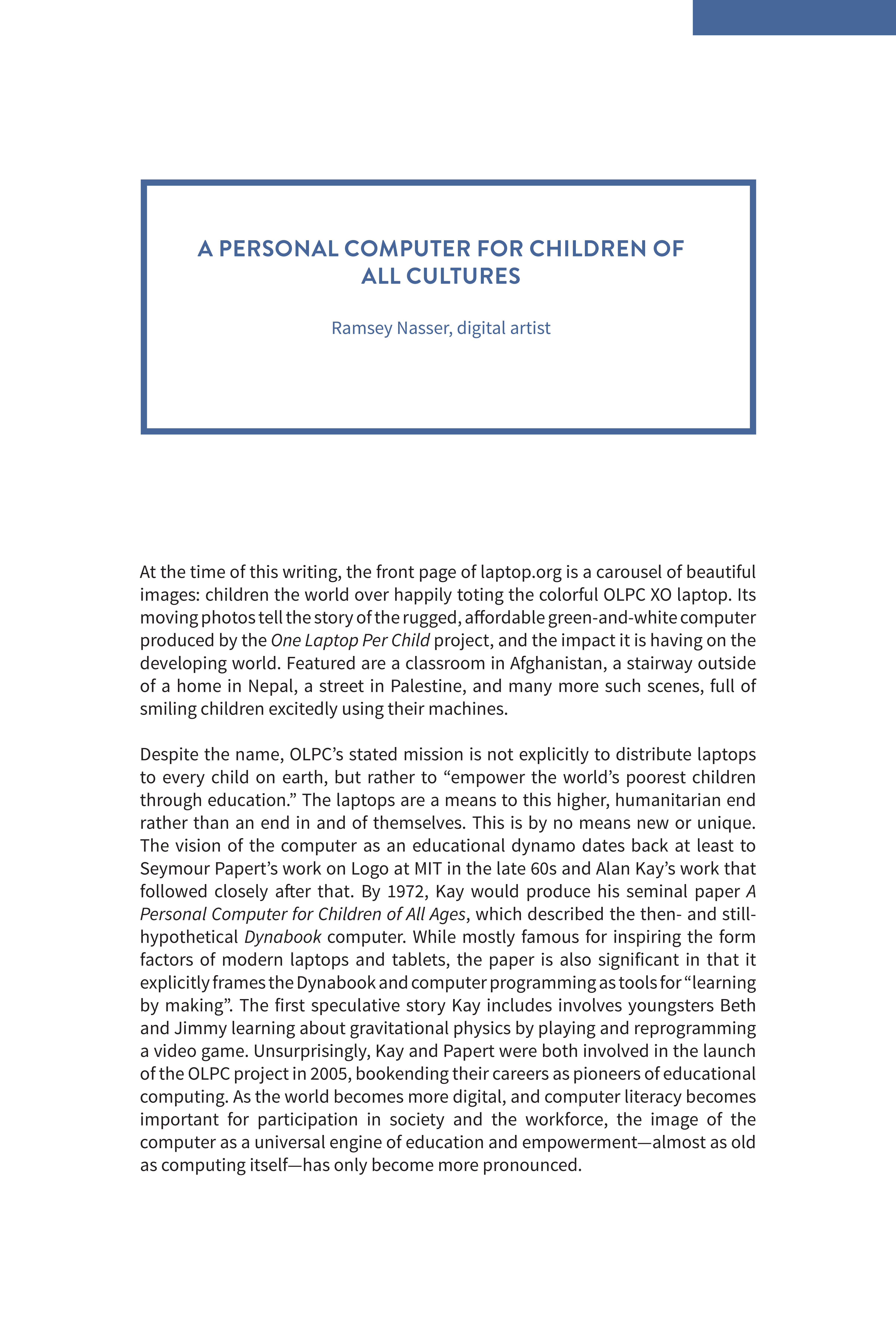A Personal Computer for Children of All Cultures
Keywords:
programming, arabic, language, text, cultureAbstract
The Arabic script presents something of a worst-case scenario to the pervasive assumption that, in computing, when we say "text" we really mean "American English". The Anglo-centric bias is most obvious in the world of computer programming. Every programming language in serious use today uses keywords, punctuation, and names taken from English, most often using the American spelling. This creates an unspoken requirement for entry into the field: familiarity with English is an absolute requirement for programmers everywhere in the world. Further, be a truly exceptional programmer, fluency in English is a must. As a confrontation, the قلب project presents a programming language derived entirely from Arabic and where Latin characters constitute a syntax error. Despite قلب's success in achieving a non-Latin programming experience, it fails in a revelatory way: its inability to handle English words means it cannot build on the last sixty years of tools, libraries, and protocols readily available to English-based programming languages, placing it at a permanent disadvantage. Software only ever builds on software that came before it, and that necessitates invoking named things using the exact names chosen by their original authors. At every level of computing, the names we've inherited are exclusively in English. Humans need to name things to manage complexity, but naming is a deeply cultural act whose implications project far into the future. This turns out to be the impassable barrier that doomed قلب – and indeed any similar project seeking to liberate programmers from western hegemony – to failure.

Downloads
Published
How to Cite
Issue
Section
License
The journal is published and distributed as an open access eBook with physical copies available Print-on-Demand (PoD). The book is released under the Budapest Open Access model, published under Creative Commons attribution license:
By “open access†to this literature, we mean its free availability on the public internet, permitting any users to read, download, copy, distribute, print, search, or link to the full texts of these articles, crawl them for indexing, pass them as data to software, or use them for any other lawful purpose, without financial, legal, or technical barriers other than those inseparable from gaining access to the internet itself. The only constraint on reproduction and distribution, and the only role for copyright in this domain, should be to give authors control over the integrity of their work and the right to be properly acknowledged and cited.
(from the “Budapest Open Access Initiative†model documentation)

